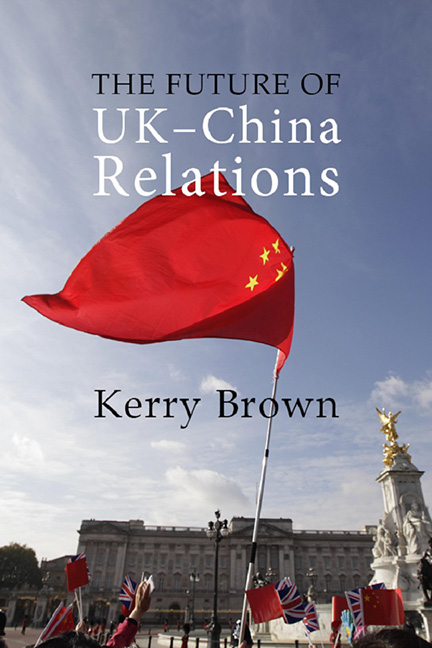Book contents
- Frontmatter
- Dedication
- Contents
- Dedication
- Preface
- Foreword by Tim Clissold
- Introduction
- 1 Tales from the golden age
- 2 What does China want? The case of the UK
- 3 Walk on by: what does Britain really want from China?
- 4 Who cares? The China circle in Britain
- 5 The good, the bad, and the Brexit: the UK and China outside the EU
- 6 The UK and China: scenarios for the coming decade
- Appendix: the UK’China balance sheet
- Further reading
- Notes
- Index
5 - The good, the bad, and the Brexit: the UK and China outside the EU
Published online by Cambridge University Press: 24 August 2023
- Frontmatter
- Dedication
- Contents
- Dedication
- Preface
- Foreword by Tim Clissold
- Introduction
- 1 Tales from the golden age
- 2 What does China want? The case of the UK
- 3 Walk on by: what does Britain really want from China?
- 4 Who cares? The China circle in Britain
- 5 The good, the bad, and the Brexit: the UK and China outside the EU
- 6 The UK and China: scenarios for the coming decade
- Appendix: the UK’China balance sheet
- Further reading
- Notes
- Index
Summary
The current situation is easy enough to summarize. As with many other countries, the UK is trying to understand a new world where a power like China with such different outlook, political values and aspirations to it is becoming increasingly important. Exceptionally, however, the UK is doing this while undertaking its own readjustment and re-evaluation of its place in the world. It is doing this amidst leaving the framework by which it related to its closest geographical and trading partners and replacing it with something new. While aiming for a closer and enhanced relationship with China, however, it has to address its own lack of deep knowledge and the right amount of networks by which to do this effectively.
Ignoring the nostalgia underpinning the Brexiteers’ vision, and the torturous path that has been travelled since the 2016 referendum, and ignoring the issue of what kind of exit deal and its aftermath might be agreed in practice over the next few years, this chapter focuses on the underlying philosophy of Brexit. If the aim is to have a greater autonomy and independence as a foreign policy actor, then it would be with a partner like China that this is most likely to be manifested. The contours of the UK’s engagement with Europe and America, and other G7 partners, are relatively well established. It is with outliers like China that the potential is greatest, because of the relatively minor level of mutual involvement currently. And here, I focus not so much on attitudes, and all the issues so problematic in the previous chapter, but simply on structural matters. What is the most desirable structure to a relationship with a new power like China for the UK? Once we have a clearer idea of that, we might have a better idea of what can, and cannot, be done. And looking at this structure is something that other powers can then learn from and study as they develop their relations with the PRC.
THE GREAT DIVERGENCE
As the mainstay of UK–China ties since the handover of Hong Kong in 1997 has been mutual economic benefit – largely ignoring the issues around values and security where there are clearly major differences of understanding and a lack of consensus – it is unsurprising that a large part of the formal relationship has been outsourced to the European Union.
- Type
- Chapter
- Information
- The Future of UK-China RelationsThe Search for a New Model, pp. 83 - 104Publisher: Agenda PublishingPrint publication year: 2019



